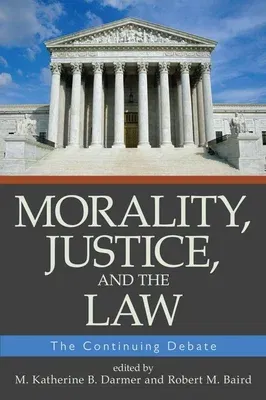What should society or individuals do when the compelling dictates of
personal conscience conflict with the law? To what extent should lawyers
and lawmakers be influenced by considerations of morality? Are there
principles that go beyond legal jurisdiction to justify acts of civil
disobedience? Is it right to violate the laws of society when they are
opposed to personal moral convictions? Is it ever appropriate for
religious considerations to influence lawyers or the law?
Few questions have had and will continue to have a more compelling
effect on the human community. For this reason the editors have brought
together this collection of intellectually stimulating articles, which
grapple with the tough issues involving morality, justice, and the
law.
Part One contains articles on the connection between morality and the
law by such eminent thinkers as Oliver Wendell Holmes, Cass R. Sunstein,
and others. Part Two focuses on issues of morality and lawyering by
looking at such questions as how lawyers should represent clients with
whom they disagree ethically and how criminal defense lawyers can
represent guilty clients. This section also addresses the recent law and
religion movement. Part Three addresses the question concerning when
civil disobedience is justified and includes an important essay by
Ronald Dworkin. Part Four explores moral and legal questions related to
capital punishment and includes the Supreme Court's most recent decision
on capital punishment, in which the majority and the dissent had
radically different views. Finally, Part Five examines the highly
charged debate about immigration.
This balanced anthology will be of interest to philosophers, legal
scholars, and anyone concerned about the relation of law to morality.


